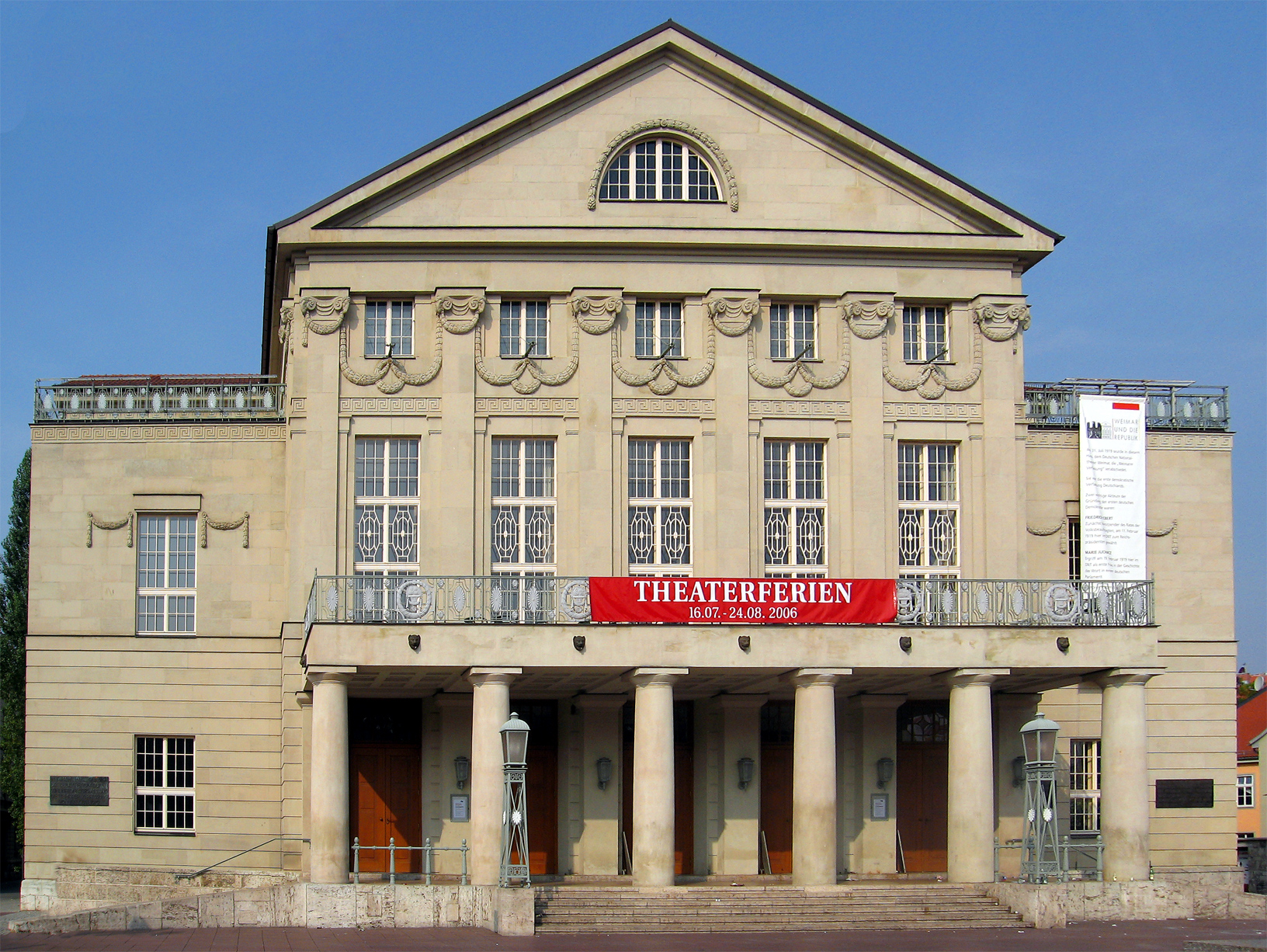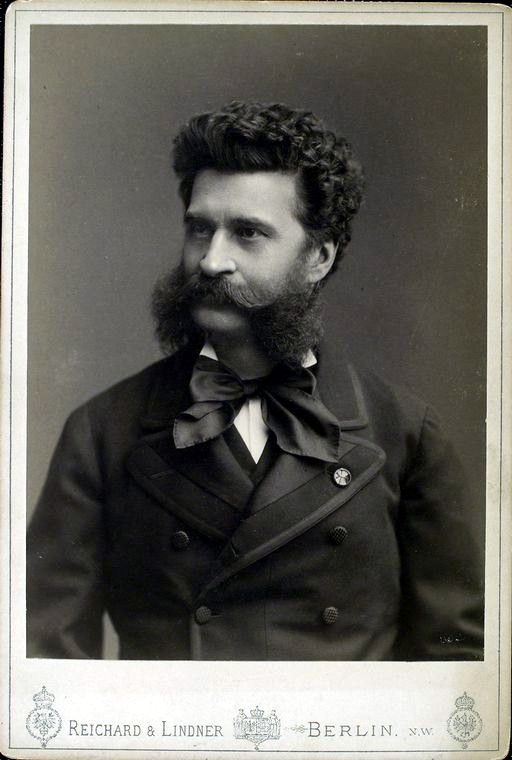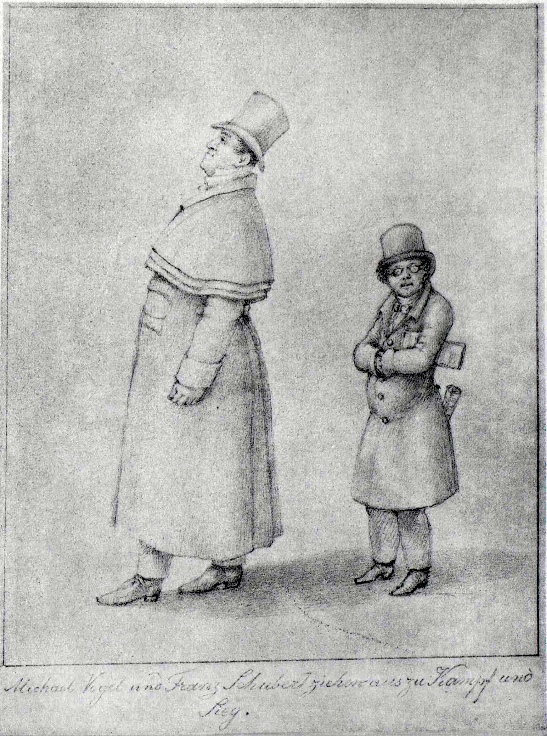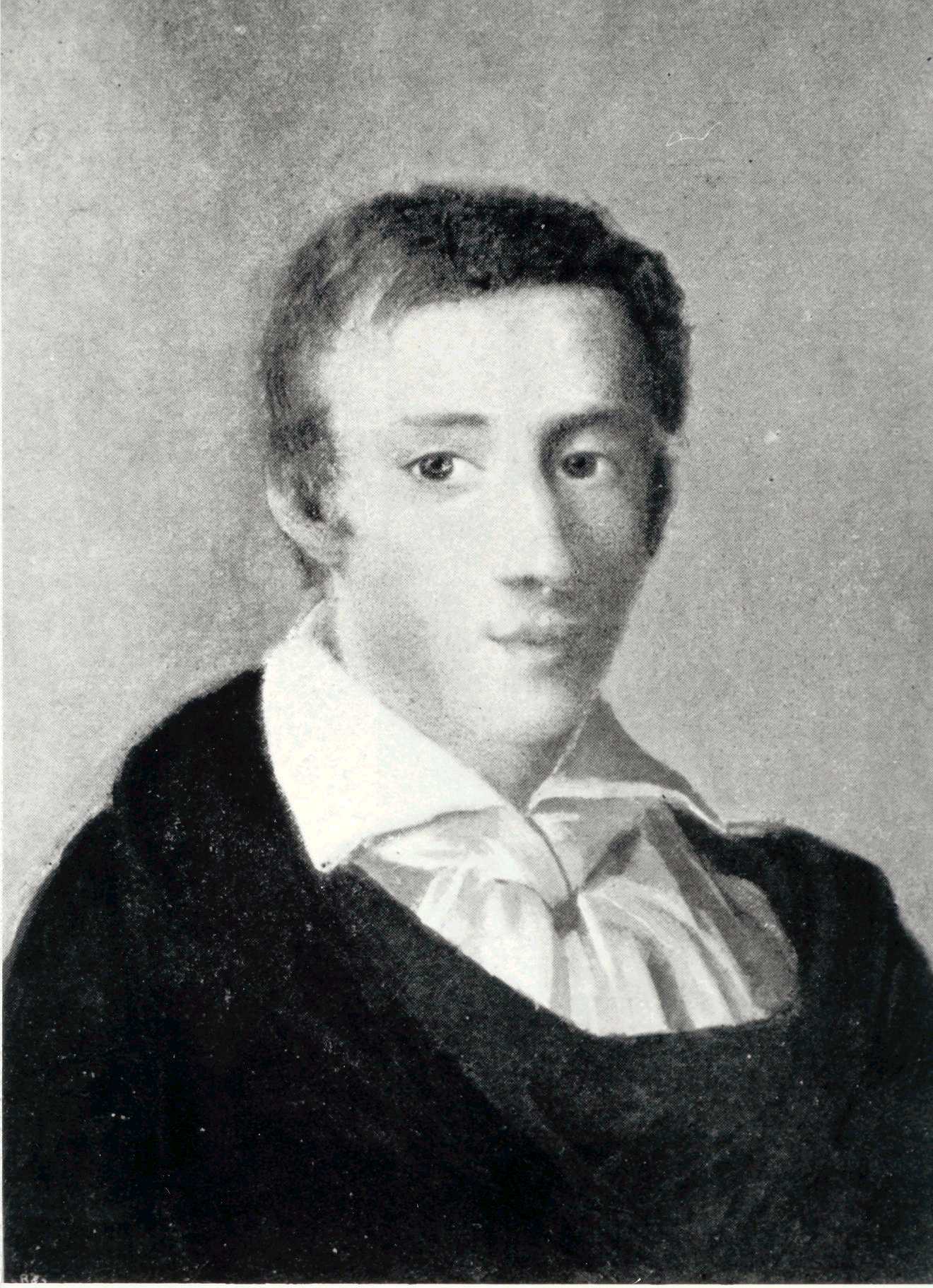|
Julius Prüwer
Julius Prüwer (20 February 1874 – 8 July 1943) was an Austrian conductor, pianist and academic teacher. Life Born in Vienna, Prüwer studied piano at the Vienna Conservatory from 1886 to 1891 with Arthur Friedheim and Moriz Rosenthal and music theory with Robert Fuchs, Franz Krenn, and (privately) with Johannes Brahms. As a conductor, he was trained by Hans Richter and worked first at the Bielitz Municipal Theater in 1892/93, at the Esseg Municipal Theater in 1893/94, and at the Cologne Opera in 1894/95. From 1895 to 1923, he was ''Kapellmeister'' at the Stadttheater Breslau, and from 1913 to 1923, he was also director of the opera there. Among other things, he conducted the German premiere of Mussorgsky's ''Boris Godunov'' there and in 1898 made a tour to St. Petersburg, where he arranged the Russian premiere of Wagner's ''Tristan und Isolde''. In 1902, 1904, and 1906, he assisted Hans Richter at the Bayreuth Festival. In 1909, he published a music guide to '' Elektra'' ... [...More Info...] [...Related Items...] OR: [Wikipedia] [Google] [Baidu] |
Arthur Friedheim
Arthur Friedheim (, 14/26 October 1859 – 19 October 1932) was a Russian-born concert pianist and composer who was one of Franz Liszt's foremost pupils. One of Friedheim's students was Rildia Bee O'Bryan Cliburn, the mother of 20th-century piano virtuoso Van Cliburn. Biography Friedheim was born in Saint Petersburg in 1859. He began serious study of music at age eight. He later studied for a year with noted pianist Anton Rubinstein but disapproved of Rubinstein's disorganized teaching methods and went instead to Liszt.Moore, 6:849. At first Liszt did not like Friedheim's playing, though he admitted the individuality of Friedheim's style. Harold C. Schonberg asserts in his book ''The Great Pianists'' that another reason Liszt may have been hesitant was that Friedheim had studied with Rubinstein, of whom Liszt may not have been terribly fond. Friedheim had to play before Liszt several times before becoming accepted as a pupil in 1880. The friendship between them eventually ... [...More Info...] [...Related Items...] OR: [Wikipedia] [Google] [Baidu] |
Deutsches Nationaltheater Und Staatskapelle Weimar
The (DNT), or German National Theater and Weimar State Orchestra, is the most significant arts organization in Weimar. The institution unites the (German National Theater) with the (Weimar State Orchestra). It plays on a total of six stages across the city. All sections of the theater and orchestra periodically give additional guest performances and appear in electronic media. Venues # Main House ('), traditional main stage on Theaterplatz (music and theatre) # Foyer and Studio Stage ('), within the main house on Theaterplatz (music and theatre; cabaret) # ''E-Werk Weimar'', a former industrial site with two venues, ' and ' (music and theatre) # ' (concerts by the Staatskapelle Weimar) The Staatskapelle Weimar History The precursor ensemble of Staatskapelle Weimar dates from 1482, with the formation of a musical ensemble in service of the Weimar ''Fürsten'' (Princes). In 1602, the ensemble attained resident status at the Weimar court, as the ''Herzoglichen Hofkapelle'' ( ... [...More Info...] [...Related Items...] OR: [Wikipedia] [Google] [Baidu] |
Academic Staff Of The Hochschule Für Musik Hanns Eisler Berlin
An academy (Attic Greek: Ἀκαδήμεια; Koine Greek Ἀκαδημία) is an institution of tertiary education. The name traces back to Plato's school of philosophy, founded approximately 386 BC at Akademia, a sanctuary of Athena, the goddess of wisdom and Skills, skill, north of Ancient Athens, Athens, Greece. The Royal Spanish Academy defines academy as scientific, literary or artistic society established with public authority and as a teaching establishment, public or private, of a professional, artistic, technical or simply practical nature. Etymology The word comes from the ''Academy'' in ancient Greece, which derives from the Athenian hero, ''Akademos''. Outside the city walls of Athens, the Gymnasium (ancient Greece), gymnasium was made famous by Plato as a center of learning. The sacred space, dedicated to the goddess of wisdom, Athena, had formerly been an olive Grove (nature), grove, hence the expression "the groves of Academe". In these gardens, the philos ... [...More Info...] [...Related Items...] OR: [Wikipedia] [Google] [Baidu] |
Austrian Conductors (music)
Austrian may refer to: * Austrians, someone from Austria or of Austrian descent ** Someone who is considered an Austrian citizen * Austrian German dialect * Something associated with the country Austria, for example: ** Austria-Hungary ** Austrian Airlines (AUA) ** Austrian cuisine ** Austrian Empire ** Austrian monarchy ** Austrian German (language/dialects) ** Austrian literature ** Austrian nationality law ** Austrian Service Abroad ** Music of Austria **Austrian School of Economics * Economists of the Austrian school of economic thought * The Austrian Attack variation of the Pirc Defence chess opening. See also * * * Austria (other) * Australian (other) Australian(s) may refer to: Australia * Australia, a country * Australians, citizens of the Commonwealth of Australia ** European Australians ** Anglo-Celtic Australians, Australians descended principally from British colonists ** Aboriginal Aus ... * L'Autrichienne (other) {{disambig Lan ... [...More Info...] [...Related Items...] OR: [Wikipedia] [Google] [Baidu] |
Johann Strauss II
Johann Baptist Strauss II (; ; 25 October 1825 – 3 June 1899), also known as Johann Strauss Jr., the Younger or the Son (), was an List of Austrian composers, Austrian composer of light music, particularly dance music and operettas as well as a violinist. He composed over 500 waltzes, polkas, quadrilles, and other types of dance music, as well as several operettas and a ballet. In his lifetime, he was known as "The Waltz King", and was largely responsible for the popularity of the waltz in the 19th century. Some of Johann Strauss's most famous works include "The Blue Danube", "Kaiser-Walzer" (Emperor Waltz), "Tales from the Vienna Woods", "Frühlingsstimmen", and the "Tritsch-Tratsch-Polka". Among his operettas, ''Die Fledermaus'' and ''Der Zigeunerbaron'' are the best known. Strauss was the son of Johann Strauss I and his first wife Maria Anna Streim. Two younger brothers, Josef Strauss, Josef and Eduard Strauss, also became composers of light music, although they were neve ... [...More Info...] [...Related Items...] OR: [Wikipedia] [Google] [Baidu] |
Felix Mendelssohn Bartholdy
Jakob Ludwig Felix Mendelssohn Bartholdy (3 February 18094 November 1847), widely known as Felix Mendelssohn, was a German composer, pianist, organist and conductor of the early Romantic period. Mendelssohn's compositions include symphonies, concertos, piano music, organ music and chamber music. His best-known works include the overture and incidental music for ''A Midsummer Night's Dream'' (which includes his " Wedding March"), the '' Italian'' and '' Scottish'' Symphonies, the oratorios '' St. Paul'' and ''Elijah'', the ''The Hebrides (overture), Hebrides'' Overture, the mature Violin Concerto (Mendelssohn), Violin Concerto, the Octet (Mendelssohn), String Octet, and the melody used in the Christmas carol "Hark! The Herald Angels Sing". Mendelssohn's ''Songs Without Words'' are his most famous solo piano compositions. Mendelssohn's grandfather was the Jewish philosopher Moses Mendelssohn, but Felix was initially raised without religion until he was baptised aged seven int ... [...More Info...] [...Related Items...] OR: [Wikipedia] [Google] [Baidu] |
Franz Schubert
Franz Peter Schubert (; ; 31 January 179719 November 1828) was an Austrian composer of the late Classical period (music), Classical and early Romantic music, Romantic eras. Despite his short life, Schubert left behind a List of compositions by Franz Schubert, vast ''oeuvre'', including more than 600 ''Lieder'' (art songs in German) and other vocal works, seven complete symphonies, sacred music, operas, incidental music, and a large body of piano and chamber music. His major works include "Erlkönig (Schubert), Erlkönig", "Gretchen am Spinnrade", and "Ave Maria (Schubert), Ave Maria"; the Trout Quintet, ''Trout'' Quintet; the Symphony No. 8 (Schubert), Symphony No. 8 in B minor (''Unfinished''); the Symphony No. 9 (Schubert), Symphony No. 9 in C major (''Great''); the String Quartet No. 14 (Schubert), String Quartet No. 14 in D minor (''Death and the Maiden''); the String Quintet (Schubert), String Quintet in C major; the Impromptus (Schubert), Impromptus for solo piano; the S ... [...More Info...] [...Related Items...] OR: [Wikipedia] [Google] [Baidu] |
Franz Liszt
Franz Liszt (22 October 1811 – 31 July 1886) was a Hungarian composer, virtuoso pianist, conductor and teacher of the Romantic music, Romantic period. With a diverse List of compositions by Franz Liszt, body of work spanning more than six decades, he is considered to be one of the most prolific and influential composers of his era, and his piano works continue to be widely performed and recorded. Liszt achieved success as a concert pianist from an early age, and received lessons from the esteemed musicians Carl Czerny and Antonio Salieri. He gained further renown for his performances during tours of Europe in the 1830s and 1840s, developing a reputation for technical brilliance as well as physical attractiveness. In a phenomenon dubbed "Lisztomania", he rose to a degree of stardom and popularity among the public not experienced by the virtuosos who preceded him. During this period and into his later life, Liszt was a friend, musical promoter and benefactor to many composer ... [...More Info...] [...Related Items...] OR: [Wikipedia] [Google] [Baidu] |
Frédéric Chopin
Frédéric François Chopin (born Fryderyk Franciszek Chopin; 1 March 181017 October 1849) was a Polish composer and virtuoso pianist of the Romantic period who wrote primarily for Piano solo, solo piano. He has maintained worldwide renown as a leading composer of his era whose "poetic genius was based on a professional technique that was without equal in his generation". Chopin was born in Żelazowa Wola and grew up in Warsaw, which in 1815 became part of Congress Poland. A child prodigy, he completed his musical education and composed his early works in Warsaw before leaving Poland at age 20, less than a month before the outbreak of the November Uprising, November 1830 Uprising; at 21, he settled in Paris. Thereafter he gave only 30 public performances, preferring the more intimate atmosphere of the Salon (gathering), salon. He supported himself, selling his compositions and giving piano lessons, for which he was in high demand. Chopin formed a friendship with Franz Liszt ... [...More Info...] [...Related Items...] OR: [Wikipedia] [Google] [Baidu] |
Alexander Brailowsky
Alexander Brailowsky (16 February 1896 – 25 April 1976) was a Russian and French pianist who specialised in the works of Frédéric Chopin. He was a leading concert pianist in the years between the two World Wars. Early life Brailowsky was born in Kiev, then part of the Russian Empire, to a Jewish family, and as a boy, he studied piano with his father, a professional pianist. When he was 8, he studied in Kiev with Vladimir Puchalsky, a pupil of Theodor Leschetizky. At the age of 18, he attended Kiev Conservatory, graduating with a gold medal in 1911. He studied with Leschetizky in Vienna until 1914 then with Ferruccio Busoni in Zürich and with Francis Planté in Paris. He became a French citizen in 1926. Career Brailowsky made his concert debut in Paris in 1919. Brailowsky programmed all 160 piano pieces by Frédéric Chopin for playing in a series of six concerts. In 1924, he gave a recital in Paris of the complete cycle of the works of Chopin, the first in history, using ... [...More Info...] [...Related Items...] OR: [Wikipedia] [Google] [Baidu] |
Deutsche Grammophon Gesellschaft
Deutsche Grammophon (; DGG) is a German classical music record label that was the precursor of the corporation PolyGram. Headquartered in Berlin Friedrichshain, it is now part of Universal Music Group (UMG) since its merger with the UMG family of labels in 1999. Deutsche Grammophon is the world's oldest surviving established record company. Presidents of the company are Frank Briegmann, Chairman and CEO Central Europe of Universal Music Group and Clemens Trautmann. History Deutsche Grammophon Gesellschaft was founded in 1898 by German-born United States citizen Emile Berliner as the German branch of his Berliner Gramophone Company. Berliner sent his nephew Joseph Sanders from America to set up operations. Based in the city of Hanover (the founder's birthplace), the company became a fully owned subsidiary of the Gramophone Company Ltd. in 1900 and an affiliate of the US Victor Talking Machine Company. After the outbreak of World War I in 1914, the company seceded from the Gramop ... [...More Info...] [...Related Items...] OR: [Wikipedia] [Google] [Baidu] |
Fanchette Verhunc
Fanchette Verhunc, also ''Fanchette Verhunck'' and ''Fandetta Verhunc'', real name ''Franja Vrhunc'', married name ''Fanchette Holzapfel'' (8 August 1874 – 11 November 1944) was a Slovenian operatic soprano and vocal coach. Life Born in Ljubljana, Laibach, Verhunc was fond of music from childhood. Growing up, she took lessons from Professor Josef Gänsbacher and Felice Mancio and took to the stage. After graduating from the Vienna Conservatory, she was first engaged for a short time at the Staatsoper Unter den Linden, then came to Posen to work through her repertoire from there, and from here, after a year's work, went to the Breslau City Theater.She was also invited to participate in the Bayreuth Festival in 1901, where she was assigned "Freia," "Ortlinde," and the "First Squire" in ''Parsifal (opera), Parsifal.'' In 1901 she made guest appearances at the Dresden Court Opera, in 1903 at the Vienna Court Opera and in 1905 at the Munich Court Opera. In 1907, she sang the tit ... [...More Info...] [...Related Items...] OR: [Wikipedia] [Google] [Baidu] |








